By: Jon Farrow
4 Sep, 2019

Fourteen inspiring early-career researchers named across five CIFAR research programs
The CIFAR Azrieli Global Scholars program supports exceptional early-career researchers who show promise to be the research leaders of tomorrow. Through funding and mentorship, the program enables essential network and professional skills development. CIFAR Azrieli Global Scholars join CIFAR research programs for 24 months where they collaborate with fellows and inspire new ways to approach the most important questions facing science and humanity. After the program, many scholars stay connected to the CIFAR community and four CIFAR Azrieli Global Scholars joined CIFAR research programs as fellows in 2019.
“We are thrilled about this infusion of talent joining our research programs and our global community,” says Dr. Alan Bernstein, CIFAR president & CEO. “These early career scholars and scientists are among the world’s brightest and most promising leaders of their generation. We are very excited to welcome them as the 2019 class of CIFAR Azrieli Global Scholars.
The CIFAR Azrieli Global Scholars program is made possible through generous funding from the Azrieli Foundation with additional support provided by the Love Family Leadership Development Fund as well as other individuals, corporations and foundations.
After a competitive recruitment process that generated 217 eligible applications from 37 countries, 14 researchers (seven identifying as women and seven identifying as men) were selected to join five CIFAR programs. These researchers are among the top emerging global talent with citizenship in eight countries and appointments in institutions in Canada, the United States, Israel, Australia, the Netherlands, and Spain.
 Megan Peters, University of California, Irvine
Megan Peters, University of California, Irvine
“My research investigates how our brains create the subjective, qualitative sense we experience of the world.”
 Joshua Shepherd, Carleton University and Barcelona University
Joshua Shepherd, Carleton University and Barcelona University
“My research concerns the psychological capacities that give rise to intelligent thought and skilled action.”
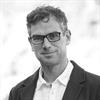 Filip Van Opstal, University of Amsterdam
Filip Van Opstal, University of Amsterdam
“My research focuses on visual consciousness and aims to explain why we can’t become aware of all sensory information that is continuously available to us.”
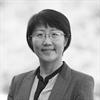 Ximin, He, University of California, Los Angeles
Ximin, He, University of California, Los Angeles
“Living plants adaptively track the sun to maximize solar harvesting for photosynthesis. I am dedicated to understanding and engineering biological phototropism and photosynthesis into man-made materials to maximize solar energy harvesting.”
“I am focused on developing cutting-edge technologies to use ‘unwanted’ carbon dioxide as a raw material, coupled with solar electricity, and turn them into valuable chemicals or fuels.”
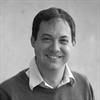 Iair Arcavi, Tel Aviv University
Iair Arcavi, Tel Aviv University
“I study some of the most energetic events possible — from exploding stars, to stars being torn apart by supermassive black holes, to neutron stars crashing together — and the new laws of nature they reveal to us.”
 Renée Hložek, University of Toronto
Renée Hložek, University of Toronto
“I use observations of bright objects in optical and radio light to understand the extreme energy processes in the universe.”
 Raffaella Margutti, Northwestern University
Raffaella Margutti, Northwestern University
“My research focuses on stellar explosions, stellar disruptions by super-massive black holes, and stellar mergers.”
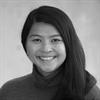 Hiutung Chu, University of California, San Diego
Hiutung Chu, University of California, San Diego
“My laboratory aims to understand the complex interactions between intestinal bacteria and their mammalian host.”
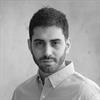 Tal Korem, Columbia University
Tal Korem, Columbia University
“My goal is to harness the microbial communities that live in our bodies (the microbiome) to create new diagnostic and therapeutic tools. “
 Carolina Tropini, University of British Columbia
Carolina Tropini, University of British Columbia
“Our bodies and our surroundings are composed of diverse environments with widely different physical and chemical properties. My laboratory combines cutting-edge experimental and computational techniques to study how these properties affect microbiota.”
 Jean-Philippe Julien, The Hospital for Sick Children
Jean-Philippe Julien, The Hospital for Sick Children
“My research uses a combination of structural and biophysical techniques to characterize how antibodies are made by the immune system, and how they carry out their function of recognizing foreign molecules.”
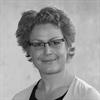 Jennifer Zenker, Monash University
Jennifer Zenker, Monash University
“Using innovative imaging techniques to look into the inside of living cells allows me to watch and modify their internal skeleton. The aim is to find a reset button and create the exact type of cell needed to restore health.”
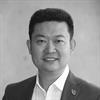 Wei Zhang, University of Guelph
Wei Zhang, University of Guelph
“I will build an innovative protein engineering platform to develop highly potent and specific blocking molecules. These engineered proteins will constitute a pool of potential novel cancer drug leads for the benefit of cancer patients.”
“The CIFAR Azrieli Global Scholars program has been a career-altering experience,” says Katherine McAuliffe, CIFAR Azrieli Global Scholar, Azrieli Program in Brain, Mind & Consciousness (Boston College). “The connections I have forged within my CIFAR program and across programs have expanded my interests, directed me towards exciting new questions and have fundamentally reshaped my research goals.”
Applicants can be from anywhere in the world, must hold a PhD (or equivalent) and be within the first five years of a full-time academic position. Applicants’ research interests must be aligned with the themes of a CIFAR research program recruiting in 2020-2022:
Each CIFAR Azrieli Global Scholar receives:
Notifications